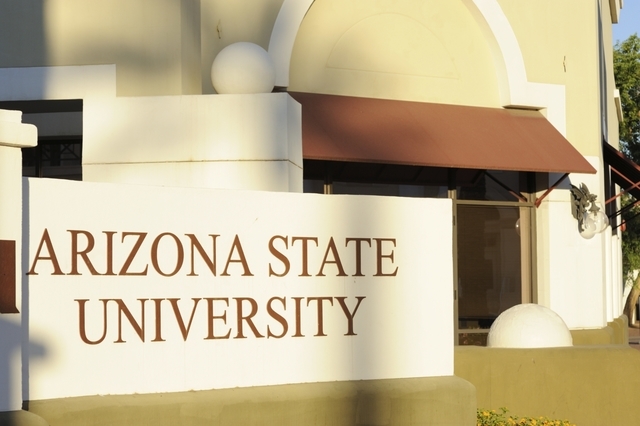Arizona State to offer freshman year cheap and at home


![]() Arizona State University is vocally committed to putting college education within reach of young people who currently find it outside their grasp, a commitment that made national headlines again last week when the school announced a partnership with EdX to provide a full year of freshman online coursework in massive open online courses, or MOOCs, that anyone can take and then convert into ASU college credit.
Arizona State University is vocally committed to putting college education within reach of young people who currently find it outside their grasp, a commitment that made national headlines again last week when the school announced a partnership with EdX to provide a full year of freshman online coursework in massive open online courses, or MOOCs, that anyone can take and then convert into ASU college credit.
“Leave your GPA, your SATs, your recommendations at home,” Anant Agarwal, the chief executive of EdX, told the New York Times. “If you have the will to learn, just bring your Internet connection and yourself, and you can get a year of college credit.”
That is not, strictly speaking, true, since the student would have to pay $200 per credit, which translates into $6,000 for a typical full-time load for a college student. That tuition is much lower than ASU’s on-campus or online options, but as skeptics note, it is also nearly twice the price you would pay at nearby Maricopa Community College, which would also transfer its credits to ASU.
Some critics, like American Federation of Teachers President Randi Weingarten, simply reject the notion out of hand.
“Massive open online courses can’t provide that same invaluable relationship students and faculty develop over time and the flexibility in instruction needed to help all students achieve success,” Weingarten said in a statement, quoted by Inside Higher Ed. “There’s no substitute for the educational and personal development students undergo in their first two years in college. This plan mistakes convenience and profits for quality and engagement and in doing so, ignores students’ individual learning needs and stunts their growth.”
But to be fair, Weingarten does have a dog in the fight: any innovation that scales up the number of students reached per teacher necessarily scales down the number of teachers needed, something a teachers union is duty bound to resist.
But Rachel Fishman, senior policy analyst for the Education Policy Program at the New America Foundation, also sees major hurdles that must be cleared before disadvantaged students will gain much from ASU’s MOOCs.
“Given that MOOCs already have low completion rates, what will ASU do to promote student success?” Fishman asks. “Just having relatively low-cost access to credits does not mean students will automatically be successful in achieving those credits. Starbucks realized this with its partnership with ASU. As a result, Starbucks employees enrolled in ASU Online have a team of coaches helping them navigate being an online student. It will be interesting to see how ASU addresses support services for students enrolled in MOOCs when no student will pay up front.”
Philip Regier, university dean for educational initiatives at ASU, told Inside Higher Ed that the human element would be built into the freshman program.
“What we aren’t going to do is put a course online that is an automaton — in other words, when the student engages with the course, there’s no interaction, no chance to have a question answered by a human,” Regier said. “Technology has made us more efficient at delivering courses, but there’s still a need for human interaction, and that won’t go away because we’re offering an open online course.”
On the Starbucks deal, as Fishman notes, despite early hiccups and skepticism, ASU has shown both commitment and flexibility.
As Amanda Ripley notes in the May issue of The Atlantic, from the outset the Starbucks deal included a strong team of support. Ripley shares some remarkable stories from students, such as one who was called out of the blue by a counselor who noticed that her first quiz score did not match her academic record. He was able to encourage her and ultimately helped her discover that the quizzes were supposed to be open book.
And when things needed to change, Ripley also notes, ASU and Starbucks made major adjustments.
“Early this year,” she writes, “Starbucks renegotiated the contract with Arizona State. Since March, the company has offered full tuition reimbursement to all employees, regardless of how many credits they’ve accrued. Starbucks has also committed to reimbursing employees immediately after they complete a class, rather than waiting for them to rack up 21 credits. Finally, Starbucks students will get even more of the kind of coaching that they found so valuable in the first semester.”How this kind of guidance can be extended to students taking massive open online courses for which they have not yet paid tuition remains to be seen.













